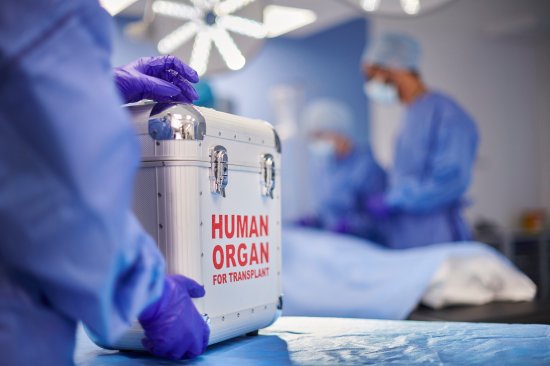
A drug that suppresses the immune system shows promise in treating Type 1 diabetes.
Organ and cell transplants are potentially life-saving treatments for a variety of medical conditions, but their success depends on how long the transplanted cells or tissues can survive in their new host. Drugs that suppress the immune system to minimize rejection must strike a delicate balance between being powerful enough to hold back the recipient’s immune system from destroying the donated material, without being too potent to cause toxic reactions.
In a study presented at the Summit on Stem Cell Derived Islets in Boston, researchers report on encouraging results using an experimental immunosuppressive drug in people with Type 1 diabetes. People with the disease no longer make enough insulin in their pancreas to break down sugar in the foods they eat, and have to monitor their blood sugar levels and inject themselves with insulin for the rest of their lives. In some cases, the insulin shots become ineffective and patients need more aggressive treatment: usually a transplant of islet cells—which produce insulin in the pancreas—from a deceased donor. But many patients end up rejecting the transplanted cells when their body’s immune system views them as foreign and starts attacking them.
[time-brightcove not-tgx=”true”]In the latest study, researchers led by Dr. Piotr Witkowski, professor of surgery and director of pancreas and pancreatic islet transplantation at University of Chicago Medicine, performed islet cell transplants using a different drug to suppress the recipients’ immune systems. The drug, tegoprubart, was the same one used in the first transplant of a pig kidney into a human patient earlier in 2024. In the current study, three patients received transplants of islet cells with tegoprubart; two no longer needed insulin injections after 18 weeks (and after a second islet cell transplant) and four weeks, respectively, and achieved normal A1C levels, while the third patient reduced their insulin needs by 60% several days after the transplant and is still being monitored.
“We have been doing deceased donor islet cell transplants for the last 24 years,” says Witkowski. “There was a lot of hope at the beginning that patients might come off insulin, but we realized that the immune suppressants we were using were not optimal, and over time, patients were losing the [transplanted] islet cells.”
Read More: The Paradox of How We Treat Diabetes
The small number of patients in the tegoprubart study reported no side effects, and the transplanted islet cells were three to five times more likely to engraft and produce insulin than cells transplanted in people who had received the current immunosuppressive drug tacrolimus. “We don’t need to adjust doses to control toxicity like we do with tacrolimus,” says Witkowski. “And their islet function is at least three times better compared to patients receiving tacrolimus because there is no toxicity. These results are preliminary, but the hope is great.”
Witkowski was inspired to try tegoprubart in islet cell transplants after the success among kidney transplant patients—including the first pig kidney operation and more traditional kidney transplants using donated human organs. So far, 60 kidney transplant patients have received tegoprubart, 13 of whom were described in a scientific journal. There have been no rejection episodes and no toxicity. “The kidney function in those transplant patients seemed to be better with tegoprubart compared with tacrolimus, and we think we can get similar results with Type 1 diabetes,” he says.
The new drug is an antibody, given as a 15-minute infusion once every three weeks. It works by suppressing the immune response to foreign proteins in a transplant from a donor. It’s not yet approved; the company developing it, Eledon, continues to study it in clinical trials to assess its safety and efficacy in kidney transplants, animal organ transplants, and ALS.
Earlier versions of the drug studied more than two decades ago increased the risk of blood clots, but continued research has reduced that risk and improved tegoprubart’s immune-suppressing ability. Witkowski hopes to find funding to continue studying these first patients and add six or so more to better understand how long the islet cells can survive and whether the drug can buy the transplanted cells enough time to engraft and restore patients’ insulin-making functions to be as close to normal as possible. “Unfortunately there is no [real] therapy for type 1 diabetes patients,” he says. “The bottom line is that we know the cells have the potential to work—they do work. The problem remains immunosuppression. And now we have a medication that may help us a lot.”
Correction, Nov. 5
The original version of this story misstated how many patients were described in studies of rejection and toxicity. While 60 patients have received tegoprubart, 13 have been described. It also misspelled the researcher’s last name. It is Witkowski, not Witkowsky.